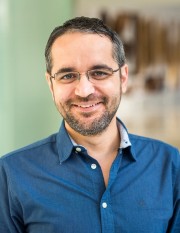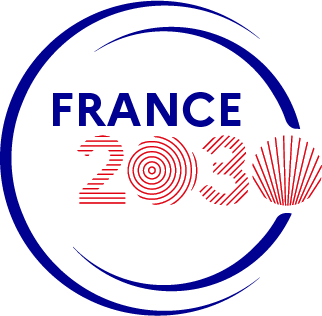
“Teaching Sponges New Tricks: Catalysis and Charge Transport in Microporous Metal-Organic Frameworks”
Thursday, July 1st, 2021, 3 p.m., IPREM and via Teams
 Traditional applications of metal-organic frameworks (MOFs) are focused on gas storage and separation, which take advantage of the inherent porosity and high surface area of these materials. The MOFs’ use in technologies that require charge transport have lagged behind, however, because MOFs are poor conductors of electricity. We show that design principles honed from decades of previous research in molecular conductors can be employed to produce MOFs with remarkable charge mobility and conductivity values that rival or surpass those of common organic semiconductors and even graphite, some exhibiting even metallic behavior. We further show that these, ordered, and crystalline conductors can be used for a variety of applications in energy storage, electrocatalysis, electrochromics, and selective chemiresistive sensing.
Traditional applications of metal-organic frameworks (MOFs) are focused on gas storage and separation, which take advantage of the inherent porosity and high surface area of these materials. The MOFs’ use in technologies that require charge transport have lagged behind, however, because MOFs are poor conductors of electricity. We show that design principles honed from decades of previous research in molecular conductors can be employed to produce MOFs with remarkable charge mobility and conductivity values that rival or surpass those of common organic semiconductors and even graphite, some exhibiting even metallic behavior. We further show that these, ordered, and crystalline conductors can be used for a variety of applications in energy storage, electrocatalysis, electrochromics, and selective chemiresistive sensing.
For his research on microporous materials with applications in energy storage, conversion, and heterogeneous catalysis, he was awarded a number of awards, most recently the ACS Award in Pure Chemistry (2018), and the Alan T. Waterman Award, NSF’s most prestigious award in all sciences and engineering to any single person under the age of 35 (2016). Dincă was promoted to Associate Professor in the Department of Chemistry at MIT in 2015.
